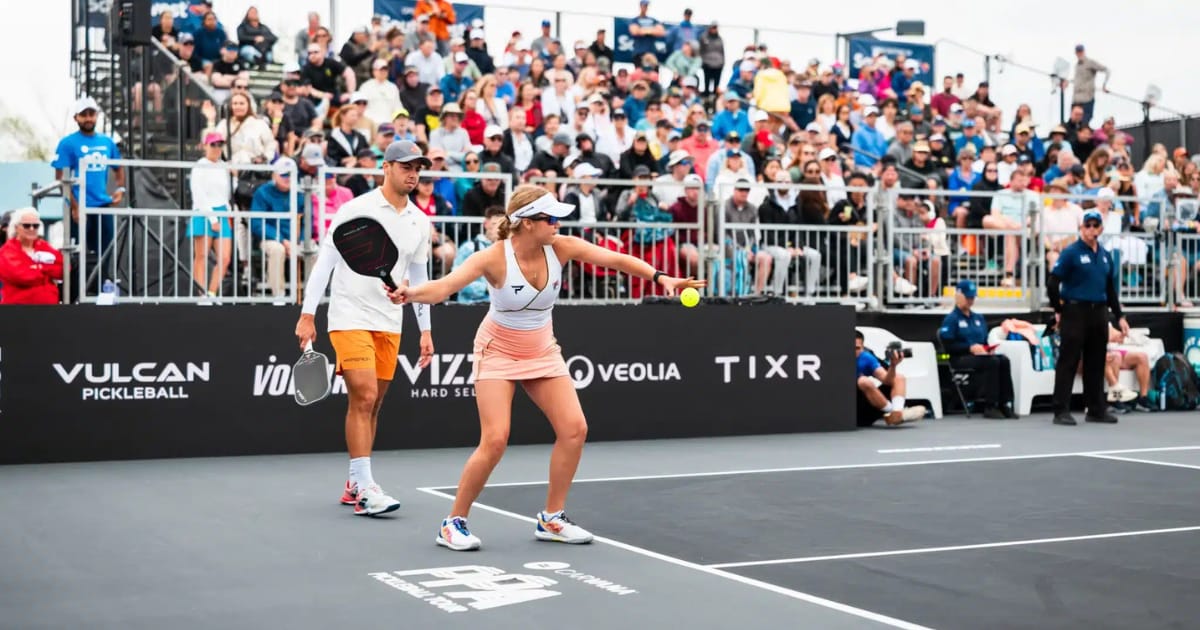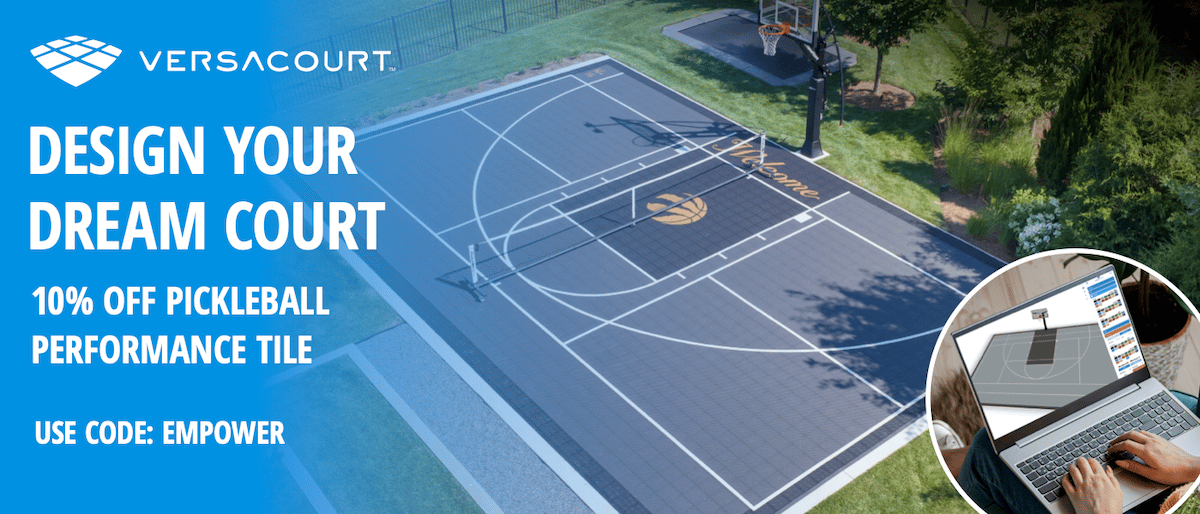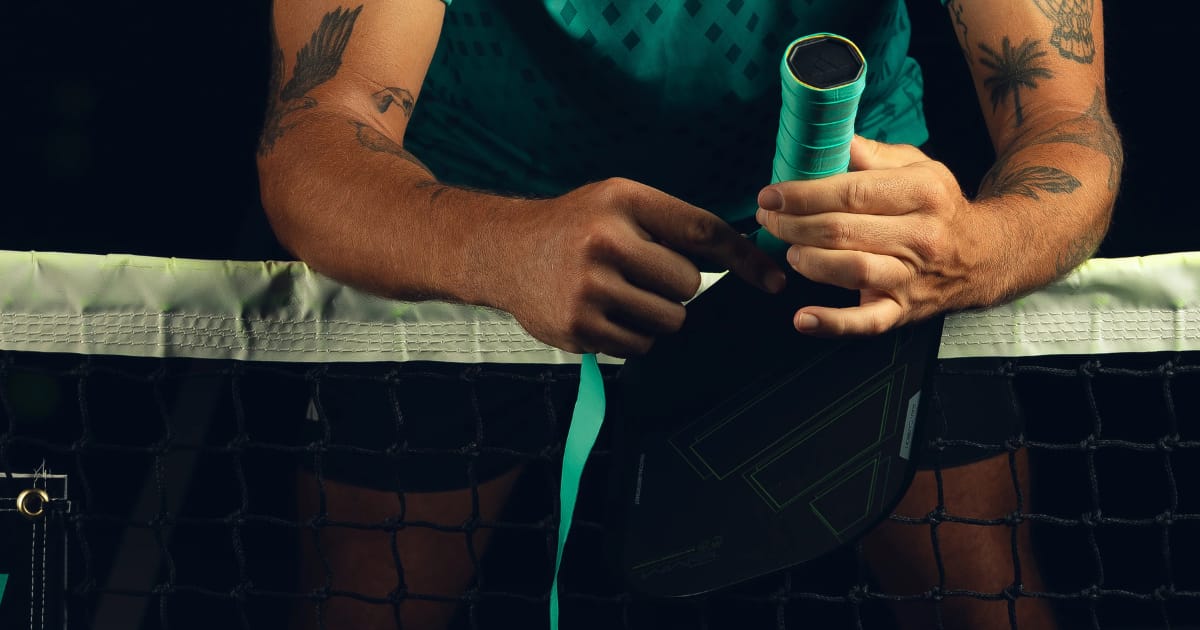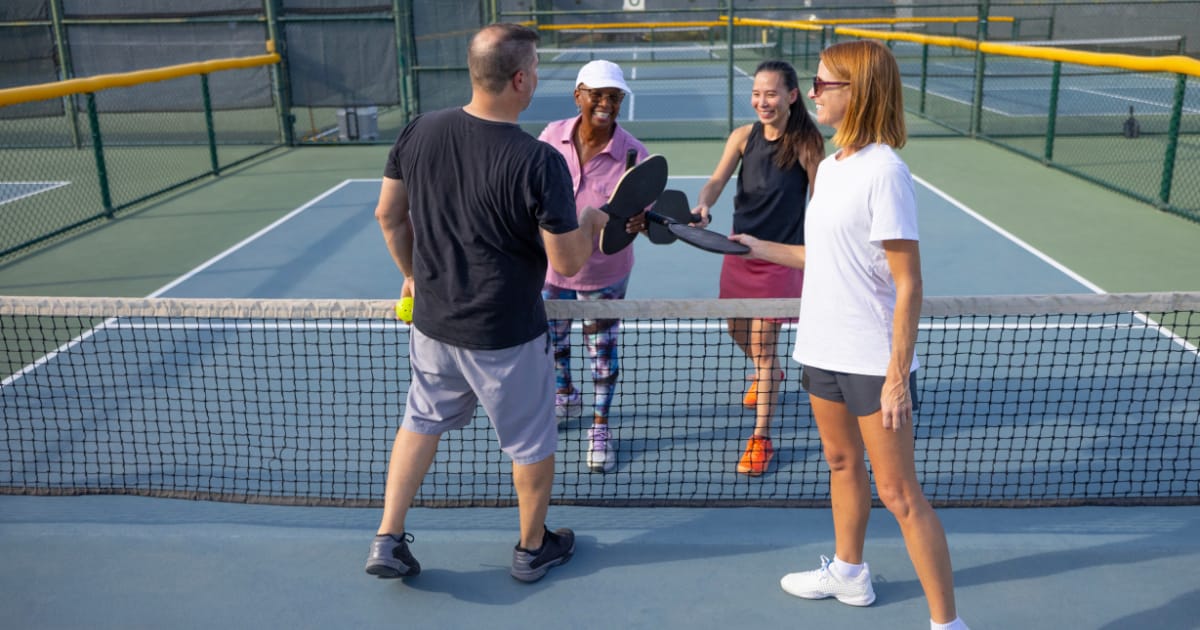- Empower Pickleball
- Posts
- First-timer wins and nerves at NJP that will inspire you 🏆
First-timer wins and nerves at NJP that will inspire you 🏆
Also inside: overgrip tips, real pickleball rules, and a look at Canada’s booming pickleball community.
Something new is coming! We’ve teamed up with Civile Apparel for a limited-edition Empower Pickleball collection dropping next week—you won’t want to miss it. We’ll drop all the details then, so you can grab some for yourself.
Meanwhile, pickleball continues to grow in Canada, from bustling city courts to smaller communities finding their footing into the game.
You’ll also find:
Stacking slip-ups that are holding your doubles game back (and how to fix them)
First-timer nerves and wins at NJP tournaments
Overgrips: the small tweak that can totally change your grip
Rules everyone thinks they know (but probably don’t)
Keep reading—your next serve, rally, and court confidence starts here.
🍁 Pickleball Canada Grows Courts and Builds a Strong National Community
After last week’s spotlight on grassroots leader Brad Boutilier, it’s clear that Canada’s pickleball growth isn’t just happening at the local level. Pickleball Canada is driving the sport forward nationwide, with membership hitting 90,000 in 2025 and an estimated 1.54 million Canadians playing at least once per month—a sign that the sport’s reach and influence keep expanding.
National Recognition and Competitive Pathways
National Sports Organization: Sport Canada officially recognized Pickleball Canada in 2025, unlocking funding, grants, and program support.
Provincial Team Competition: A “friendly yet competitive” showcase featuring talent from six provinces, building both skill and community.
National System: Over 400 affiliated clubs now use the digital platform to manage memberships, tournaments, coaching, and officiating.
DUPR Alignment: Pickleball Canada adopted global standards for all sanctioned events, keeping Canadian play consistent with international competition.
Building Community and Access
Court shortages remain a challenge, but Pickleball Canada is tackling the issue with a Facility Task Team and a 16-member Ambassador Program to support local growth. Annual National Championships, provincial tournaments, and grassroots outreach ensure that players of all levels can connect, compete, and feel part of a thriving community.
Executive Director Barry Petrachenko emphasizes, “Pickleball Canada is committed to advancing the sport while preserving its roots. The sport is inviting, competitive, and community-focused—and we’re building it for everyone.”
👉 Read the full update on Pickleball Canada.
🌎 Around the Picklesphere
🫀 Stop letting the first game BE your warm-up
🎥 Lindsey Newman’s secret to doubles play
👀 Limited-edition apparel drop coming soon
👓 See the difference on the court
🚧 5 Stacking Mistakes Holding Back Your Doubles Game
BRING THIS TO THE COURT: Stacking can give your team a real edge in doubles play—but only if you execute it cleanly. These are some of the most common mistakes teams make when stacking and how to fix them before they cost you points.
Mistake 1: Losing Track of Positions
One of the easiest ways to hand over a free point is serving or returning from the wrong side. In stacking, the confusion happens fast.
✅ Fix it: Confirm positions before each point. You can also run “odd/even” drills in warm-ups—shout a score and line up instantly to reinforce where you should be.
Mistake 2: Sloppy Transitions
After a stacked serve or return, one partner has to move—but rushing or hesitating leaves wide open gaps.
✅ Fix it: Drill side-switching. Move side-to-side after every point until it feels authentic. Add a cue like “switch now” so you’re both moving with purpose instead of guessing mid-point.
Mistake 3: Weak Communication
No signals, no plan, no coverage—that’s how collisions happen.
✅ Fix it: Agree on hand signals before every serve or return (fist = stay, open hand = switch). Practice calling “switch” or “stay” out loud during drills so you build reaction speed and trust.
Mistake 4: Overstacking
If you’re stacking every single point, you’re probably missing opportunities to adapt. Predictability makes it easier for opponents to pick you apart.
✅ Fix it: Use stacking strategically. If one play has a stronger forehand or net game, stack for that advantage—but don’t force it when it doesn’t fit. Try mixing in standard formations to keep opponents guessing.
Mistake 5: Standing in the Server’s Way
The non-server sometimes crowds too close, causing foot faults or awkward serves.
✅ Fix it: Stay a paddle-length or more behind the baseline until the ball’s hit. Practice this spacing so it becomes second nature.
When you clean up these small details, stacking stops feeling chaotic and starts working for you. Communicate clearly, move with purpose, and use the tactic when it actually gives your team an edge.
🏡 The Court That Turns Your Backyard Into a Hotspot
Forget hot tubs and fire pits—a VersaCourt is the upgrade that actually gets used. The cushioned tiles stay cooler, protect your joints, and hold up game after game without the cracks and upkeep of concrete.
And it’s not just for pickleball. From basketball to shuffleboard, VersaCourt turns your space into a true neighborhood hangout—the kind of place where friends show up with paddles and kids stick around longer.
👉 Exclusive for Empower readers: Use code EMPOWER for 10% off Pickleball Performance Tiles
🏆 Young Players Make Big Moves at NJP
For young athletes, stepping into a pickleball tournament can feel like entering an adult world—but at National Junior Pickleball (NJP), kids get to compete with peers their own age. From 10-year-old Lucas winning his first medal to advanced teens Francesca and Dominic chasing pro dreams, NJP creates a space where players grow confidence, make friends, and find community.
The competition is fierce, the energy is electric, and every match teaches a lesson—on strategy, focus, and teamwork. Ready to see how NJP is shaping the next generation of pickleball stars?
👉 Check out their first tournament experiences.
🖐️ Overgrips Might Just Change Your Game
Ever feel your paddle slipping mid-rally? Overgrips are a simple, inexpensive way to add tackiness, comfort, and control.
Here’s what they do:
Add tackiness.
Absorb moisture.
Reduce hand fatigue.
Protect your paddle.
Adjust handle thickness.
You don’t have to use one, but once you try it, you might not go back. The right overgrip can keep you confident on the court and let you focus on your game, not your grip.
👉 Find the best overgrips for you play.
📏 Pickleball Rules Everyone Gets Wrong
Think you know the rules? Even experienced players get tripped up by the finer points—like the “double bounce,” kitchen confusion, underhand serves, and who can call what. Knowing the real rules can save points, prevent arguments, and make games way more fun.
Here’s what to remember:
Let the ball bounce once on each side before volleys.
Don’t volley from the kitchen or while touching its line.
Serve underhand, below the waist, diagonally—and net serves that land in count.
👉 Check out all the rules and sharpen your game.









